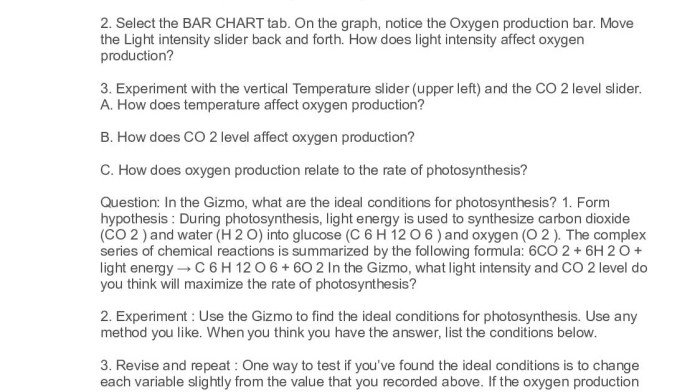Biology midterm exam study guide – Prepare to conquer your biology midterm with this comprehensive study guide. Dive into the depths of fundamental concepts, explore essential terms, and master the exam format with ease. Embark on a journey of academic triumph as we unlock the secrets to biology mastery.
Our study guide empowers you with the knowledge and strategies to excel in your exam. Discover the key concepts that will be tested, and delve into the depths of biological processes and pathways. Practice questions and interactive exercises will sharpen your understanding and build your confidence.
Key Concepts
The midterm exam will assess your understanding of the fundamental concepts, terms, and themes covered in the biology course up to this point. These concepts form the foundation of biological sciences and provide a framework for understanding the complexity of life.
Mastering these key concepts will not only help you succeed in the exam but also lay a solid foundation for your future studies in biology and related fields.
Essential Terms and Definitions, Biology midterm exam study guide
To fully grasp the key concepts, it is crucial to understand the essential terms and definitions associated with them. Here is a comprehensive list:
- Cell:The fundamental unit of life, composed of a membrane-bound structure containing genetic material.
- DNA:The genetic material found in cells, carrying instructions for an organism’s development and functioning.
- Protein:Essential molecules responsible for various cellular functions, including metabolism, structure, and regulation.
- Homeostasis:The ability of an organism to maintain a stable internal environment despite external changes.
- Evolution:The process by which populations of organisms change over generations, resulting in the emergence of new species.
- Ecosystem:A community of living organisms and their physical environment, interacting and exchanging energy and matter.
Major Themes and Learning Objectives
The key concepts are organized around several major themes, each with specific learning objectives. Understanding these themes will provide a deeper comprehension of the interconnectedness of biological processes:
- Structure and Function:The relationship between the structure of organisms, cells, and molecules and their functions.
- Genetics and Heredity:The mechanisms of inheritance, including DNA replication, gene expression, and genetic variation.
- Evolution and Diversity:The processes and patterns of evolution, leading to the diversity of life on Earth.
- Ecology and Interactions:The interactions between organisms and their environment, including population dynamics, community ecology, and ecosystems.
- Homeostasis and Regulation:The mechanisms by which organisms maintain a stable internal environment and respond to external stimuli.
Study Materials
Access the necessary resources and optimize your study approach to ace your midterm exam. Dive into recommended textbooks, explore lecture notes, and leverage online platforms to enhance your understanding of key concepts.
Plan your study sessions strategically, allocating time wisely for each topic. Create a structured schedule that aligns with your learning style and availability. Organize your materials effectively, ensuring they are readily accessible when needed.
Textbooks
Campbell Biology, 12th Edition by Jane B. Reece et al.
Comprehensive and up-to-date coverage of core biological principles.
Essential Cell Biology, 5th Edition by Bruce Alberts et al.
In-depth exploration of cellular structure, function, and regulation.
Molecular Biology of the Cell, 7th Edition by Bruce Alberts et al.
Advanced insights into molecular mechanisms and cellular processes.
Lecture Notes
- Attend lectures regularly and actively engage in note-taking.
- Review notes promptly after class to reinforce concepts and identify areas requiring further clarification.
- Summarize and condense key points to enhance understanding and facilitate memorization.
Online Resources
Khan Academy
Free video lessons, practice exercises, and interactive simulations covering a wide range of biology topics.
Coursera
Online courses and lectures from top universities, providing in-depth knowledge on specific biological concepts.
BioInteractive
Engaging videos, interactive simulations, and virtual labs to enhance understanding and foster scientific inquiry.
Practice Questions and Activities
Engaging in practice questions and activities is crucial for reinforcing your understanding of key concepts and preparing for the exam format. These exercises allow you to test your knowledge, identify areas for improvement, and develop problem-solving skills.
In this section, we provide a range of practice materials to help you enhance your exam readiness.
Design Practice Questions
- Craft practice questions that encompass the key concepts covered in the course material and reflect the format of the actual exam.
- Ensure questions are clear, concise, and challenge students to apply their knowledge in various contexts.
- Consider incorporating a mix of question types, such as multiple-choice, short answer, and essay questions.
Interactive Exercises and Simulations
- Develop interactive exercises that allow students to engage with the material in a hands-on manner.
- Create simulations that provide realistic scenarios and enable students to apply their knowledge in practical settings.
- These activities can enhance understanding, promote critical thinking, and make learning more enjoyable.
Mock Exams and Quizzes
- Organize mock exams or quizzes that simulate the actual exam experience.
- This allows students to assess their progress, identify areas where they need additional preparation, and build confidence for the actual exam.
li>Provide students with timed practice under exam-like conditions.
Exam Structure and Format: Biology Midterm Exam Study Guide
Understanding the structure and format of the midterm exam is crucial for effective preparation. Let’s dive into the details to ensure you’re well-equipped for the big day.
Number of Questions
The exam will consist of a total of 50 questions, covering a wide range of topics from the course material.
Time Limit
You will have 90 minutes to complete the exam, so time management is essential. Pace yourself accordingly to avoid running out of time.
Question Types
The exam will include a variety of question types, including:
- Multiple Choice
- True/False
- Short Answer
- Essay
Grading Criteria
The questions will be weighted differently, with multiple choice and true/false questions carrying the least weight and essay questions carrying the most. The total number of points available for the exam is 100.
Time Management Tips
To manage your time effectively during the exam, consider the following tips:
- Start with the questions you’re most confident in.
- Skip any questions you’re unsure about and come back to them later.
- Don’t spend too much time on any one question.
- Use the remaining time to review your answers.
Biology-Specific Topics
Biology is a vast and complex subject, encompassing a wide range of concepts and principles. For your midterm exam, you will be expected to have a solid understanding of the following key topics:
Cell Biology:– The structure and function of cells, including organelles and cell membranes – Cell division and the cell cycle – Energy production and metabolism
Genetics:– Mendelian genetics and inheritance patterns – DNA structure and function – Gene expression and regulation
Evolution:– The theory of evolution by natural selection – Evidence for evolution – The process of speciation
Ecology:– The interactions between organisms and their environment – Population dynamics and community ecology – Ecosystems and biomes
Physiology:– The function of organ systems in animals and plants – Homeostasis and regulation – Reproduction and development
Important Experiments, Theories, and Case Studies
In addition to these core concepts, you will also need to be familiar with several important experiments, theories, and case studies that have shaped our understanding of biology. These include:
- Griffith’s experiment:Demonstrated that genetic material could be transferred between bacteria.
- Avery-MacLeod-McCarty experiment:Identified DNA as the genetic material.
- Hershey-Chase experiment:Confirmed that DNA is the genetic material of viruses.
- The Hardy-Weinberg principle:Explains how allele frequencies remain constant in a population.
- The theory of endosymbiosis:Proposes that eukaryotic cells evolved from a symbiotic relationship between prokaryotic cells.
Complex Biological Processes and Pathways
Finally, you will also need to be able to explain complex biological processes and pathways. These include:
- Photosynthesis:The process by which plants convert sunlight into energy.
- Cellular respiration:The process by which cells produce energy from glucose.
- The Krebs cycle:A series of chemical reactions that occur during cellular respiration.
- Protein synthesis:The process by which cells create proteins.
- The immune response:The body’s defense against infection.
Visual Aids and Illustrations
Visual aids can enhance your understanding of biology concepts. Diagrams, charts, and graphs help visualize complex processes and relationships. They make it easier to grasp the big picture and identify patterns.
Creating Informative Visual Aids
-
-*Diagrams
Use diagrams to illustrate the structure or function of cells, organs, or systems.
-*Charts
Organize data into tables or charts to compare and contrast different aspects of biological processes.
-*Graphs
Plot data points on graphs to show trends, relationships, or changes over time.
Describing Images and Figures
Images and figures on the exam may depict biological structures, processes, or experiments. Carefully observe and describe these images, noting key features, relationships, and any relevant details.
Interactive Simulations and Animations
Interactive simulations and animations can bring biological concepts to life. They allow you to manipulate variables, observe results, and gain a deeper understanding of complex processes.
Exam Preparation Timeline
Organizing a study timeline is crucial for exam preparation. It helps you stay organized, motivated, and on track.Break down the study material into smaller, manageable chunks. This will make the task seem less daunting and allow you to focus on one topic at a time.
Set realistic goals for each day or week, and track your progress to stay motivated.
Time Management Techniques
* Create a study schedule that works for you and stick to it.
- Break down large tasks into smaller, more manageable chunks.
- Use a timer to track your study sessions and stay focused.
- Take breaks throughout your study sessions to avoid burnout.
- Reward yourself for completing study goals to stay motivated.
Active Recall
* Actively recall information by testing yourself regularly.
- Use flashcards, practice questions, or explain concepts to someone else.
- Spaced repetition helps improve memory and retention.
Prioritization
* Identify the most important concepts and focus on those first.
- Use practice questions and past papers to gauge your understanding.
- Seek clarification from your instructor or classmates if needed.
Collaboration
* Form study groups with classmates to discuss concepts and quiz each other.
- Share notes and resources to enhance your understanding.
- Attend review sessions offered by your instructor or department.
Rest and Well-being
* Get enough sleep before the exam.
- Eat healthy foods and stay hydrated.
- Take breaks and engage in stress-reducing activities.
- Maintain a positive attitude and believe in yourself.
Exam Day Strategies
Exam day can be stressful, but there are strategies you can use to manage your anxiety and perform your best.
Before the exam, get a good night’s sleep, eat a healthy breakfast, and arrive at the exam on time. During the exam, take a few deep breaths to calm yourself down. Read the instructions carefully and make sure you understand what is being asked.
Approaching Different Types of Questions
Different types of questions require different strategies. For multiple-choice questions, read all the answer choices carefully before selecting your answer. For short-answer questions, be concise and to the point. For essay questions, take a few minutes to plan your answer before you start writing.
Reviewing Answers and Avoiding Mistakes
Once you have finished the exam, take a few minutes to review your answers. Make sure you have answered all the questions and that your answers are clear and concise. Check for common mistakes, such as spelling and grammar errors.
Question Bank
What are the key concepts covered in the biology midterm exam?
This study guide provides a comprehensive overview of the fundamental concepts that will be tested on the midterm, including cell biology, genetics, evolution, and ecology.
Where can I find practice questions to prepare for the exam?
This guide includes a variety of practice questions and interactive exercises to help you test your understanding and identify areas where you need further review.
How can I manage my time effectively during the exam?
The guide offers tips and strategies for managing your time wisely during the exam, including prioritizing questions and allocating time appropriately.

